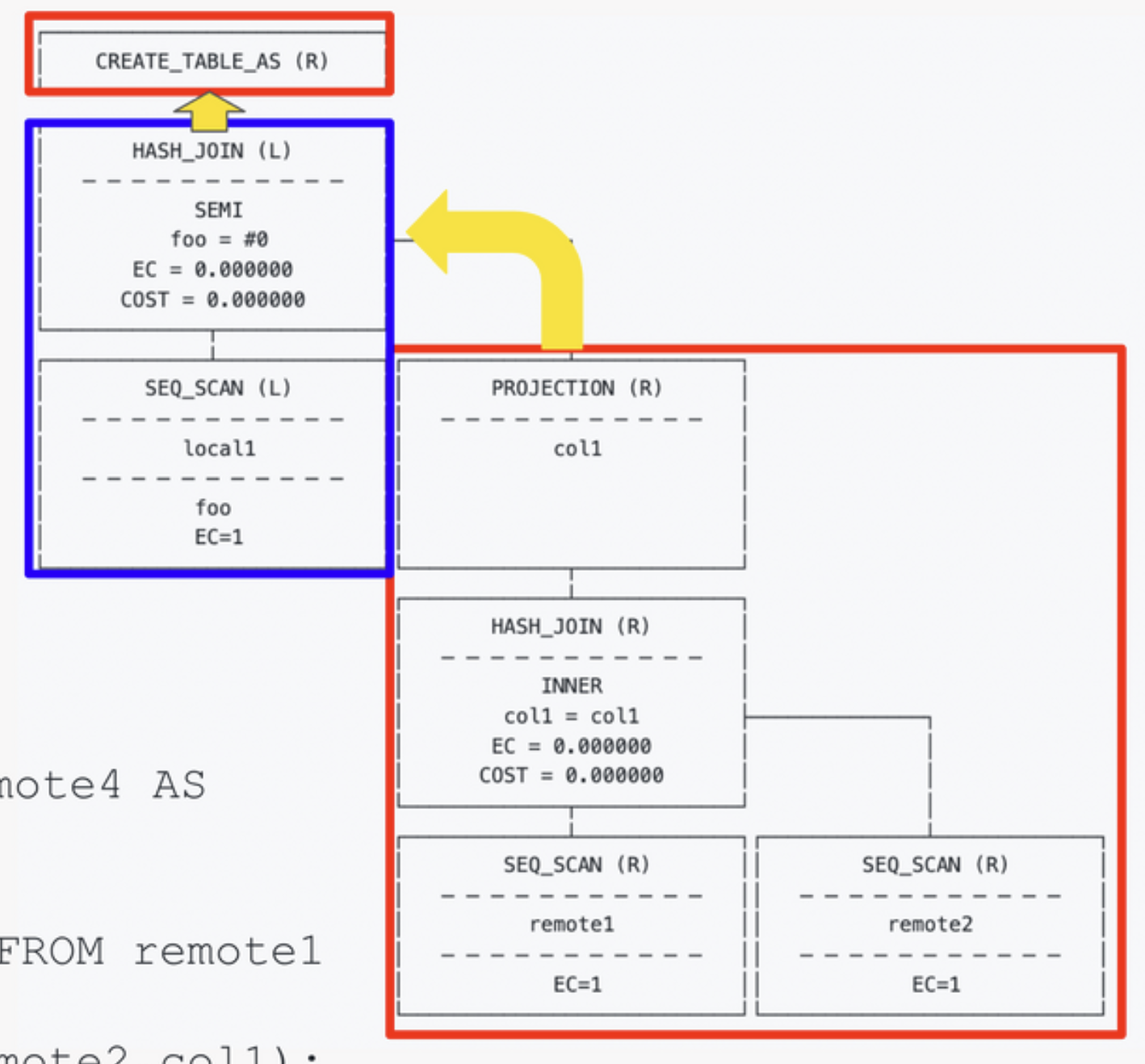FAQ
What's the difference between .open md: & ATTACH 'md:' ?
.open initiates a new database connection (to a given database or my_db by default) and can be passed different parameters in the connection strings like motherduck_token or saas_mode flag. If you have previous local database attached, it will be detached when using .open.
ATTACH keeps the current database connection and attaches a new motherduck (cloud) database(s) to the current connection. You'll need to use USE to select the database you want to query.
How do I know which version of DuckDB I should be running ?
MotherDuck currently supports DuckDB 1.4.4.
- In US East (N. Virginia) -
us-east-1, MotherDuck is compatible with client versions 1.3.0 through 1.4.4. - In Europe (Frankfurt) -
eu-central-1, MotherDuck is compatible with client versions 1.4.1 through 1.4.4.
Please check that you have a compatible version of DuckDB running locally.
How do I know which version of DuckDB am I running?
You can use the VERSION pragma to find out which version of DuckDB you are running
PRAGMA VERSION;
How do I know what's executed locally and what's executed remote ?
If you run an EXPLAIN on your query, you will see the phyical plan. Each operation is followed by either (L)= Local or (R)= Remote as shown in the query plan example below. More information can be found in the documentation.
EXPLAIN [Your Query]

I connect to both MotherDuck and a local database, why is there an uncheckpointed WAL left behind?
DuckDB keeps a database instance cache for each unique connection path. Connecting to MotherDuck extends the lifetime of the database instance to a default of 15 minutes. If you observe a WAL file left behind for the local database after the process exits or run into the "File is already open" error when closing and reopening the connection, there are several workarounds:
- Run
CHECKPOINT "local-database-name"in the application code. - Run
DETACH "local-database-name"in the application code - Disable the cache lifetime extension by setting
motherduck_dbinstance_inactivity_ttlsetting to0s(see Setting Custom Database Instance Cache TTL).
Why am I not in the same Organization as my team?
If you sign up to MotherDuck directly, you will create your own Organization as a part of the sign up flow. To join your team's Organization, reach out to your team and request that they invite you to their Organization. As an alternative, you may reach out to MotherDuck support and we can search for other users within your domain.
How do I use my team's shared databases?
Some database shares are scoped at the ORGANIZATION level. To use those shares, you must be in the same Organization as the person who created the share.
In addition, some shares are marked as 'DISCOVERABLE`. This allows members of the same Organization to easily find those shares through the UI.
Follow the steps outlined in "Why am I not in the same Organization as my team?" to join your team!
How do I delete my account?
You can delete your account and all associated information by following these steps:
- Navigate to your personal Settings and select "Members" from the left sidebar
- Click the three dots (⋮) next to your name
- Select "Delete"
- Confirm the account deletion
If you are the only member of your Organization, deleting your account will also delete the Organization.
For additional assistance, please contact our support team.
Why I am getting SSL errors when connecting to MotherDuck from a Docker image?
If you see SSL errors when trying to connect to MotherDuck from a Docker image, this is likely because the image does not have updated CA certificates. If the container was working and suddenly stopped, it is likely that the certificates in the image have expired. Please refer to Docker's documentation for best practices on updating CA certificates in Docker images.
Some common errors you might see indicating an issue with your CA certificates include:
Could not get default pem root certs.Failed to create security handshaker.Update handshaker factory failed.
Why don't COPY DATABASE statements work in the MotherDuck Web UI?
The MotherDuck Web UI has limitations with certain SQL statements that are implemented as multiple statement macros:
COPY DATABASE statements have limited support in the MotherDuck Web UI:
- The full
COPY FROM DATABASEcommand is not supported when copying both schema and data simultaneously - Workaround: Use the
COPY FROM DATABASEcommand with specific options:COPY FROM DATABASE source_db TO target_db (SCHEMA)- copies only the database structureCOPY FROM DATABASE source_db TO target_db (DATA)- copies only the database data
For full functionality with these commands, use the DuckDB CLI or other supported drivers. More information about database copying can be found in the database operations documentation.